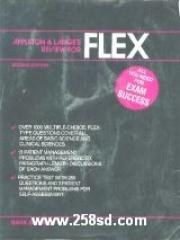

具体描述
preface<br > Like many Americans, I belatedly discovered the "crisis in urban edu-<br >cation" in the late 1960s. This was a time in the United States when the<br >ghettos were in revolt, when local groups demanded community control of<br >the schools, and when teachers went on strike to protest some of the black<br >community s demands. Black leaders claimed that the schools provide their<br >children with inadequate opportunities to learn. White middle-class parents,<br >feeling that large city public schools are not only inadequate but dangerous,<br >emigrated to the suburbs. Some teachers, believing that ghetto children are<br >unmanageable, demanded (and sometimes got) police protection. Other<br >leachers, alienated by the system, produced a spate of books-for example,<br > Kohl s 36 Children-which inveighed against the schools oppression and out-<br >lined .radical solutions.<br > The crisis in education was not limited to the city s problems, altlmugh<br >~these naturally received most of the national news coverage. Small town and<br >.rural America suffered, too. In Ithaca, New York, a local parents group<br >formed a "Black Board of Education" to protest the regular school board s<br >polidies and practices, especially its alleged failure to provide adequate teach-<br >ing and :guidance for black children. Nearby, in the farm conmmnity of<br >Dryden, there were no protests and no overt sigus of conflict. But in Dryden<br >many poor rural whites drop out of school, and those who stay in learn little.<br >Most of these children find that education neither enriches their lives nor<br >improves their social and economic position.<br > Before the crisis in education forced itself into the public conscions-<br >ness, many educators and psychologists were engaged in attempts to improve<br >poor children s education. Psyclmlogists conducted research on poor children s<br >intellectual abilities and attempted to develop and evaluate new programs<br >of compensator?, education. Many teachers experimented with techniques in-<br >tended to break the cycle of failure associated with poor children s schooling.<br > ix<br >
作者简介
目录信息
读后感
评分
评分
评分
评分
用户评价
这本书读起来有一种令人不安的真实感,仿佛作者直接潜入了无数普通人的内心深处,把那些最隐秘的焦虑和自卑,用清晰的文字一一勾勒了出来。它不是一本“励志”读物,恰恰相反,它揭示了为什么有些“励志”的口号对某些人来说根本无法奏效。作者在论述中表现出极高的同理心,但这种同理心并非软弱的纵容,而是一种基于深刻理解后的理性剖析。我尤其关注了书中关于“习得性无助”如何跨越代际传递的那些章节,那些数据和个案的结合,有力地证明了环境对个体能动性的潜在制约。这本书的叙事节奏把握得非常好,时而紧凑有力,时而留白深远,让人在阅读过程中不断地进行自我对照和反思。它迫使你跳出自己已有的舒适区来看待问题,挑战了许多根深蒂固的“常识”。读完后,我感觉自己对“公平”这个词汇的理解,上升到了一个全新的维度。
评分老实说,我一开始是被这本书的封面设计吸引的,那种略带复古的排版和大胆的留白,暗示着一种对既有观念的挑战。翻开后,我发现作者的论证过程极其严谨,但其语言风格却充满了辩证的张力,读起来毫不枯燥。这本书的精妙之处在于,它巧妙地平衡了社会学的大背景与心理学的微观视角。它没有沉溺于对过去的批判,而是将焦点放在了“认知”与“现实”之间的鸿沟上。比如,书中对“期望值管理”在不同经济基础下的差异化影响的分析,简直是教科书级别的案例拆解。我之前从未从这个角度去审视过我的童年经历,读完后才恍然大悟,原来很多看似是个人性格缺陷的特质,其实是早年资源限制下形成的一种自我保护机制。这本书更像是一面镜子,它映照出我们社会结构中的裂痕,但更重要的是,它也指引我们如何去正视这些裂痕,而不是继续粉饰太平。对于任何关心社会公正和个人成长的人来说,这本书都是一份不可多得的精神财富。
评分这本书简直是洞察人性的教科书!我原本以为这会是一本严肃的学术著作,充满了晦涩难懂的理论和数据,毕竟书名听起来就带着一股浓厚的社会学气息。然而,作者的叙事方式如同高明的魔术师,在不知不觉中就将你带入了一个个鲜活的场景之中。最让我印象深刻的是对于“匮乏感”在不同社会阶层中的具体表现的描摹,那细腻入微的观察,简直让人拍案叫绝。比如,书中对中产阶级在“资源焦虑”下的那种微妙的自我设限和无意识的攀比心理的剖析,精准得如同X光扫描。它不是简单地指责谁的对错,而是提供了一个理解人类行为动机的全新透镜。我读完后,看待周围的同事和朋友时,总会多一份理解和少一份苛责,因为我开始明白,很多我们表面上看到的“选择”或“固执”,其深层驱动力往往是根植于早年经验中未被满足的需求。这本书成功地将宏大的社会议题,解构成了个体可以感同身受的微观故事,实属不易。它迫使你反思,你所认为的“正常”或“应得”,究竟是自然规律,还是被历史和环境塑造出来的认知陷阱。
评分读完这本书,我感觉自己的思维像是经历了一场彻底的“排毒”。我本来对教育公平和代际流动性有自己的成见,倾向于相信“努力就能成功”的简单逻辑。这本书并没有直接去推翻这个论点,而是更深入地探讨了“被剥夺感”如何以一种近乎隐形的方式,渗透到个体的决策结构中去,从而限制了他们视野的广度和行动的勇气。作者的文笔极其富有画面感,尤其是在描述那些在看似富足的环境中成长的孩子,如何因为某种微妙的、未被言明的“精神上的短缺”而做出看似矛盾的选择时,那种文学张力让人欲罢不能。我尤其欣赏它避开了那种煽情的说教,而是用一种近乎冷峻的、客观的笔调,将社会结构对个体心智的塑造过程,层层剥开。这绝对不是那种读完就扔的书,我甚至已经开始在笔记中标记出一些段落,准备在日后思考人际关系和职业发展时反复参阅。它提供了一种哲学上的深度,让人不再满足于表面的因果关系。
评分这本书的结构安排非常精妙,它不是线性推进的,而是像一个复杂的迷宫,每走一步都会让你对前一步的理解产生新的认知。我最欣赏的是作者对“符号性资本”与“物质性资本”相互作用的探讨,这种跨学科的整合能力令人叹服。它成功地将抽象的社会理论,转化成了可以被大众理解和讨论的具体情境。我曾以为自己对这个主题已经了解得够多了,但作者总能提供一个全新的、更具穿透力的切入点。例如,关于“被忽视的群体”在面对机会时,其内在的“准备度”差异的讨论,让我对很多社会现象有了更深层次的理解。这本书的语气是审慎且充满敬意的,它没有将任何群体简单地标签化,而是试图去理解在特定的历史和社会环境下,人们是如何塑造自己的生存逻辑的。我强烈推荐给那些喜欢深度思考,并且不满足于平面化解读社会新闻的读者。
评分 评分 评分 评分 评分相关图书
本站所有内容均为互联网搜索引擎提供的公开搜索信息,本站不存储任何数据与内容,任何内容与数据均与本站无关,如有需要请联系相关搜索引擎包括但不限于百度,google,bing,sogou 等
© 2026 book.wenda123.org All Rights Reserved. 图书目录大全 版权所有













![[环球国家地理杂志]六碟精装(豪华品味人生之旅)(VCD) pdf epub mobi 电子书 下载](https://doubookpic.tinynews.org/b3f7a409793995fbd3a074424aaf698cd9765524f3cec0326183a90b3c6d932f/book-default-lpic.gif)






